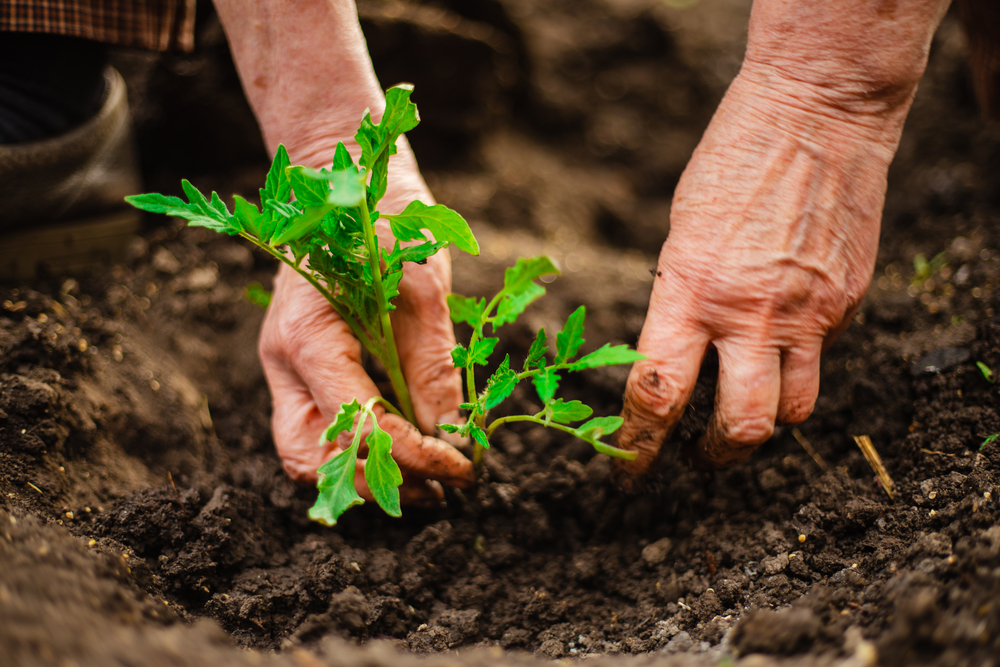The study determined that the region could consolidate itself as a leader in promoting food security and advancing towards sustainability through good practices in land use.

San José, 29 April 2022 (IICA) – Applying the main methodologies to measure soil carbon stocks and greenhouse gas emissions in the field, land use and potential carbon sequestration in the soil by adopting sustainable management practices are essential strategies to achieve sustainability.
A study developed by the Inter-American Institute for Cooperation on Agriculture (IICA) and The Ohio State University Center for Carbon Management and Sequestration (C-MASC) entitled “Soil carbon sequestration through the adoption of sustainable management practices: Potential and opportunity for the Americas” summarizes information on the carbon sequestration potential of soils in the Americas.
The work was carried out by a group of experts led by Carlos Eduardo Cerri of the “Luiz de Queiroz” School of Agriculture of the University of São Paulo (ESALQ/USP), Brazil, and Rattan Lal, Director of the Center for Carbon Management and Sequestration (C-MASC) of The Ohio State University.
The study seeks to present new protocols aimed at curbing land degradation and promoting soil health and carbon sequestration in the Americas.
The intensive use of soils to meet the growing demand for food, fiber and energy has resulted in soil carbon loss and, consequently, increased greenhouse gas (GHG) emissions. For this reason, it is vital to implement sustainable soil carbon sequestration practices and well-targeted political agendas, which need to be scaled up to regional and national levels, in order to mitigate climate change and contribute to food security.
The document’s main findings include promising sustainable management practices that could be adopted in the Americas, such as zero tillage, cover crops, organic amendments, pasture restoration through integrated silvopastoral and crop-livestock-forest systems and forest restoration, among others.
By adopting only two large-scale sustainable management practices, pasture recovery and conservation tillage, the potential accumulation of carbon in the soil of the countries of the Americas would increase by about 2.68 Pg C (equivalent to 9.8 PgCO2) over 20 years. This volume represents about 7.9% of the total annual global net anthropogenic greenhouse gas emissions from agriculture and 4.1% of global emissions from agriculture, forestry and other land uses. In financial terms, the carbon sequestration potential estimated in the publication ranges from billions to more than one trillion U.S. dollars that could benefit the producers and countries of the region.
According to the study, small changes in carbon stocks can have significant positive impacts on the atmosphere and climate change. Recent estimates show that soil carbon accounts for 25% of the potential for nature-based solutions, of which 40% are intended to protect existing soil carbon and 60% to rebuild depleted stocks. This makes agrifood systems a fundamental pillar for the maintenance of global food and climate security.
Another substantive finding of the study is that the region of the Americas has great potential to contribute to climate change mitigation and the implementation of adaptation strategies. Multiple options for sustainable management practices could be adopted in the region to sequester carbon and contribute to mitigating climate change, producing food and other environmental benefits while taking into account different social preferences and economic contexts.
In order to achieve this potential soil carbon sequestration, well-targeted national and international technical and political agendas need to be established to encourage and support the implementation of practical and enforceable measures regarding soil health and carbon sequestration. Additionally, guidelines for monitoring, verifying, and reporting results are critical to assessing the effectiveness of such measures.
The analysis is part of the Living Soils of the Americas program. Launched in 2020 by the Inter-American Institute for Cooperation on Agriculture (IICA) and The Ohio State University Center for Carbon Management and Sequestration (C-MASC), the initiative is spearheaded by renowned World Food Prize winner (2020) Rattan Lal, together with Manuel Otero, Director General of IICA.
This was coordinated by IICA’s Director of Technical Cooperation, Federico Villarreal. The document was co-written by Mauricio Cherubin and Junior Damian of the University of São Paulo, and Francisco Mello, Coordinator of the LiSAm Technical Secretariat, led by IICA’s Directorate of Technical Cooperation.
The program is made up of an extensive network that includes governments, international organizations, universities, the private sector and civil society organizations that will join efforts to curb land degradation and thereby promote soil health and carbon sequestration, among other benefits.
The governments of Brazil, Canada, Chile, Colombia, El Salvador, Mexico, Peru and Uruguay; the companies Bayer, Syngenta and PepsiCo; as well as technical cooperation mechanisms and associations of producers have already joined this coalition that tackles the degradation of a fundamental resource for health and life.
More information:
Institutional Communication Division
comunicacion.institucional@iica.int
Website of the Living Soils of the Americas initiative










